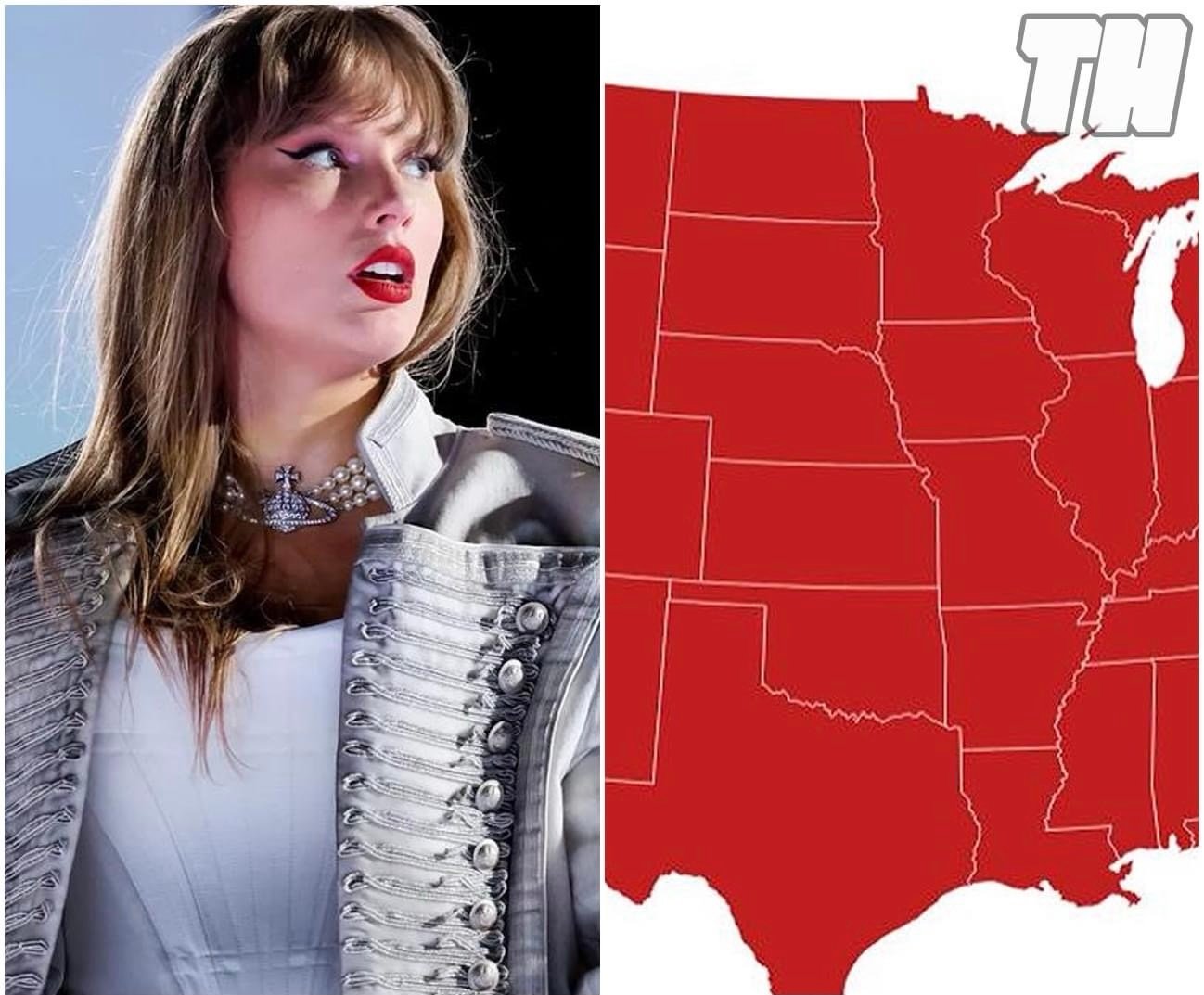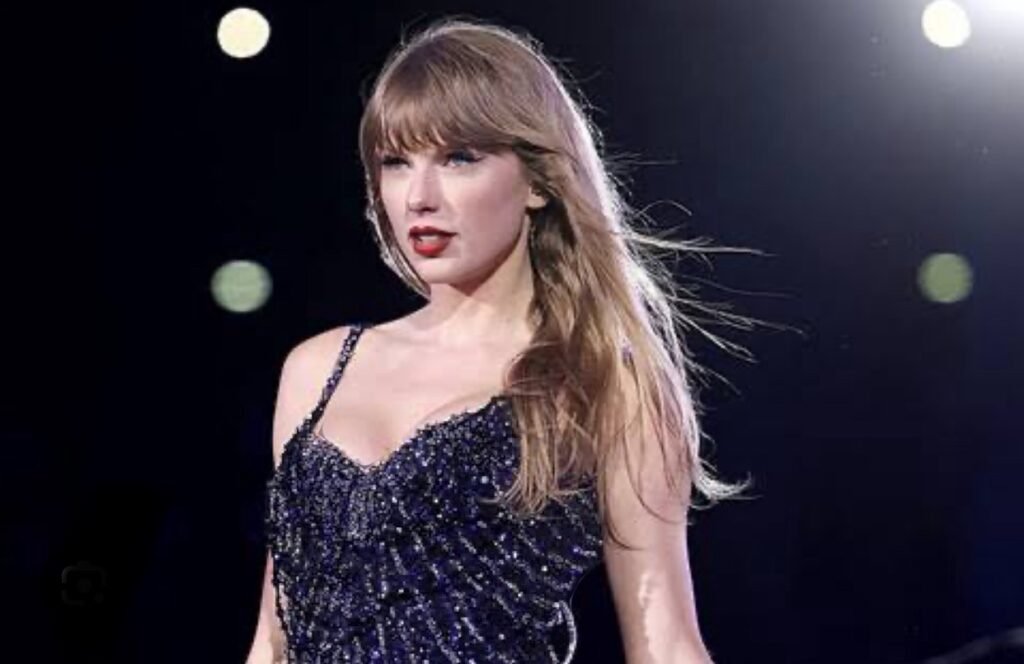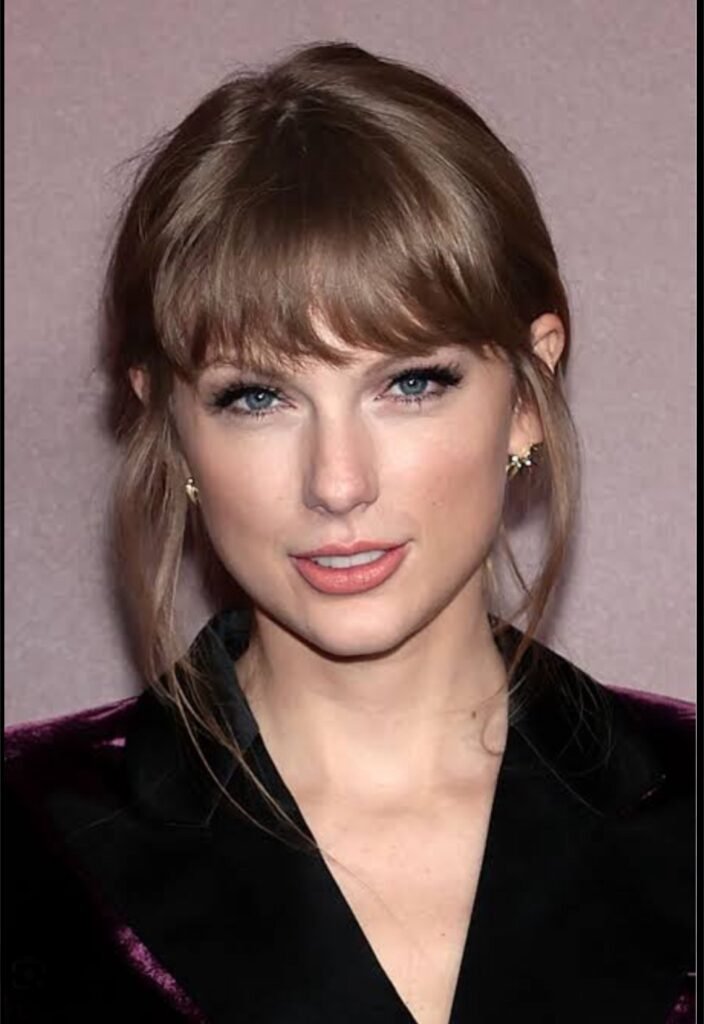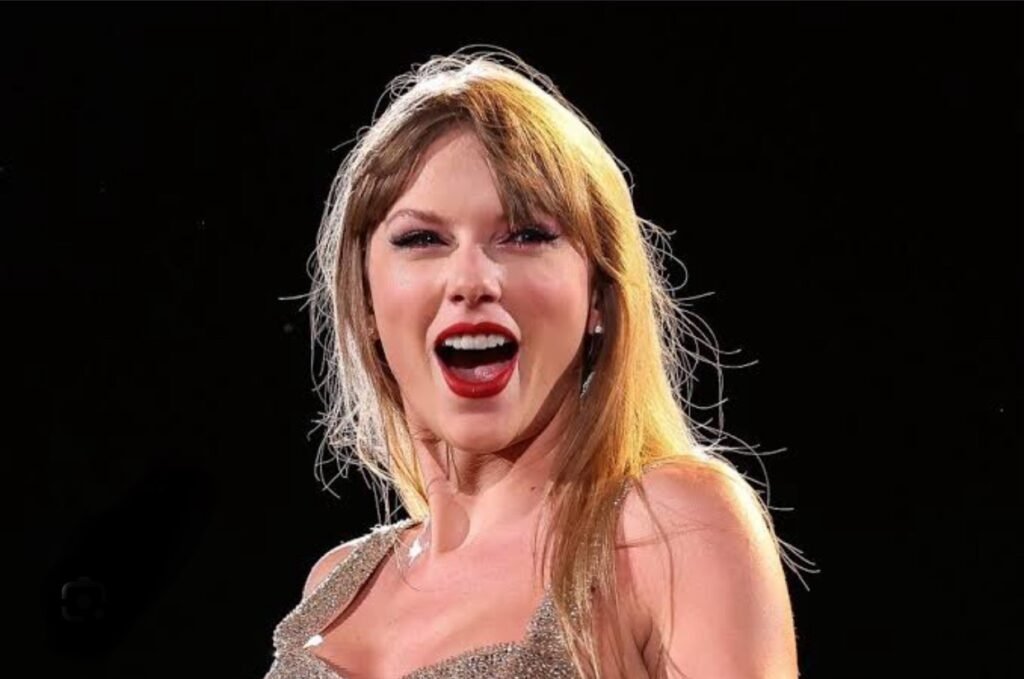Taylor Swift Announces Boycott of Red States: “I Can’t In Good Conscience Perform There”

In a move that has ignited both praise and backlash across the nation, pop superstar Taylor Swift has announced she will no longer perform in certain Republican-led “red states.” The decision, which Swift described as a matter of “conscience and conviction,” comes amid heightened political tensions and growing debates over social and civil rights issues in the U.S.
“I’ve thought long and hard about this,” Swift said in a statement released on her social media platforms. “I love all my fans, no matter where they live. But I can’t in good conscience perform in states where human rights, women’s rights, and LGBTQ+ rights are being stripped away. It goes against everything I stand for.”
A Bold Move from America’s Biggest Pop Star
Taylor Swift, known for her chart-topping hits and record-breaking tours, has become a cultural icon over the past decade. While she spent much of her early career steering clear of political controversy, the Midnights singer has taken an increasingly vocal stance on social and political issues in recent years.
From advocating for LGBTQ+ rights to supporting women’s reproductive freedoms, Swift has used her massive platform to champion causes she believes in. Her latest move, however, marks her most direct and controversial political statement yet.
Why Swift Is Boycotting
In her statement, Swift cited a series of legislative actions in certain red states that she believes undermine fundamental rights and freedoms. These include:
1. Restrictions on Reproductive Rights: Several Republican-led states have passed strict abortion bans or severely restricted access to reproductive healthcare following the Supreme Court’s 2022 decision to overturn Roe v. Wade.
2. Anti-LGBTQ+ Legislation: Laws targeting transgender youth, restricting LGBTQ+ representation in schools, and banning drag performances have been enacted in states like Texas, Florida, and Tennessee.
3. Voting Rights Concerns: Swift has also expressed concerns over new voting laws in some states that critics argue disproportionately impact minority communities.
“These aren’t just political issues—they’re human issues,” Swift emphasized. “I can’t turn a blind eye to what’s happening.”

Fan Reactions: Praise, Criticism, and Everything in Between
Swift’s decision has sparked a firestorm of reactions from fans, politicians, and fellow celebrities.
Many of her supporters have applauded her for taking a stand. “Taylor is using her platform for good,” one fan wrote on Twitter. “She’s standing up for what’s right, even if it costs her financially.”
Prominent figures in the entertainment industry also voiced their support. “Proud of you, @TaylorSwift,” actress and activist Sophia Bush tweeted. “This is what courage looks like.”
However, not everyone is on board with Swift’s decision. Some fans from the affected states expressed disappointment, arguing that they feel left behind.
“Taylor, I’m a huge fan, and I share your values,” one follower commented. “But boycotting entire states means punishing your fans who support you and the causes you care about. We need you here, not away from us.”
Conservative commentators and politicians were quick to criticize the move, accusing Swift of being divisive and alienating her audience. “Another Hollywood elite out of touch with real Americans,” one pundit remarked. “She’s turning her back on millions of fans for the sake of politics.”
Economic Impacts
Swift’s boycott could have significant economic consequences for the states affected. Her Eras Tour has been one of the most lucrative tours in history, generating hundreds of millions of dollars in ticket sales, hotel bookings, and local business revenue.
Cities that were slated to host Swift’s concerts are now grappling with the potential loss of a major economic boost. Local officials in some red states have expressed disappointment over the decision, noting that her concerts attract fans from all political backgrounds.
One city council member in Nashville, Tennessee, said, “Taylor Swift isn’t just an artist—she’s an economic powerhouse. Losing her concert means losing millions in local revenue, which affects businesses, workers, and communities.”

Swift’s Message to Her Fans
Despite the controversy, Swift made it clear that her decision wasn’t made lightly. In a follow-up message to her fans, she expressed empathy for those who may be disappointed.
“This isn’t about turning my back on you,” she wrote. “It’s about standing up for what I believe in and using my voice to bring attention to the issues that matter. I hope you’ll understand, and I hope we can find ways to stay connected, even if I can’t be there in person.”
She also hinted at alternative ways to engage with fans in red states, including virtual performances and charity initiatives to support local organizations fighting for civil rights.

The Bigger Picture
Taylor Swift’s boycott is part of a larger trend of celebrities and public figures using their influence to advocate for social and political change. While such actions can be polarizing, they also highlight the growing intersection of entertainment and activism in today’s cultural landscape.
For Swift, the decision to boycott red states is about more than just politics—it’s a reflection of her commitment to using her platform to advocate for a more inclusive and equitable society.
As she prepares for the next leg of her Eras Tour in more progressive states and international venues, one thing is clear: Taylor Swift’s voice, both on and off the stage, isn’t going anywhere.
Conclusion
Whether you agree with her decision or not, Taylor Swift’s boycott of red states is a bold statement in a divided nation. It’s a reminder that in today’s world, artists are more than just entertainers—they’re influencers, advocates, and agents of change.
As the conversation around civil rights and social justice continues to evolve, Swift’s actions may inspire others to speak out—or spark further debate about the role of celebrities in shaping America’s political and cultural future.




